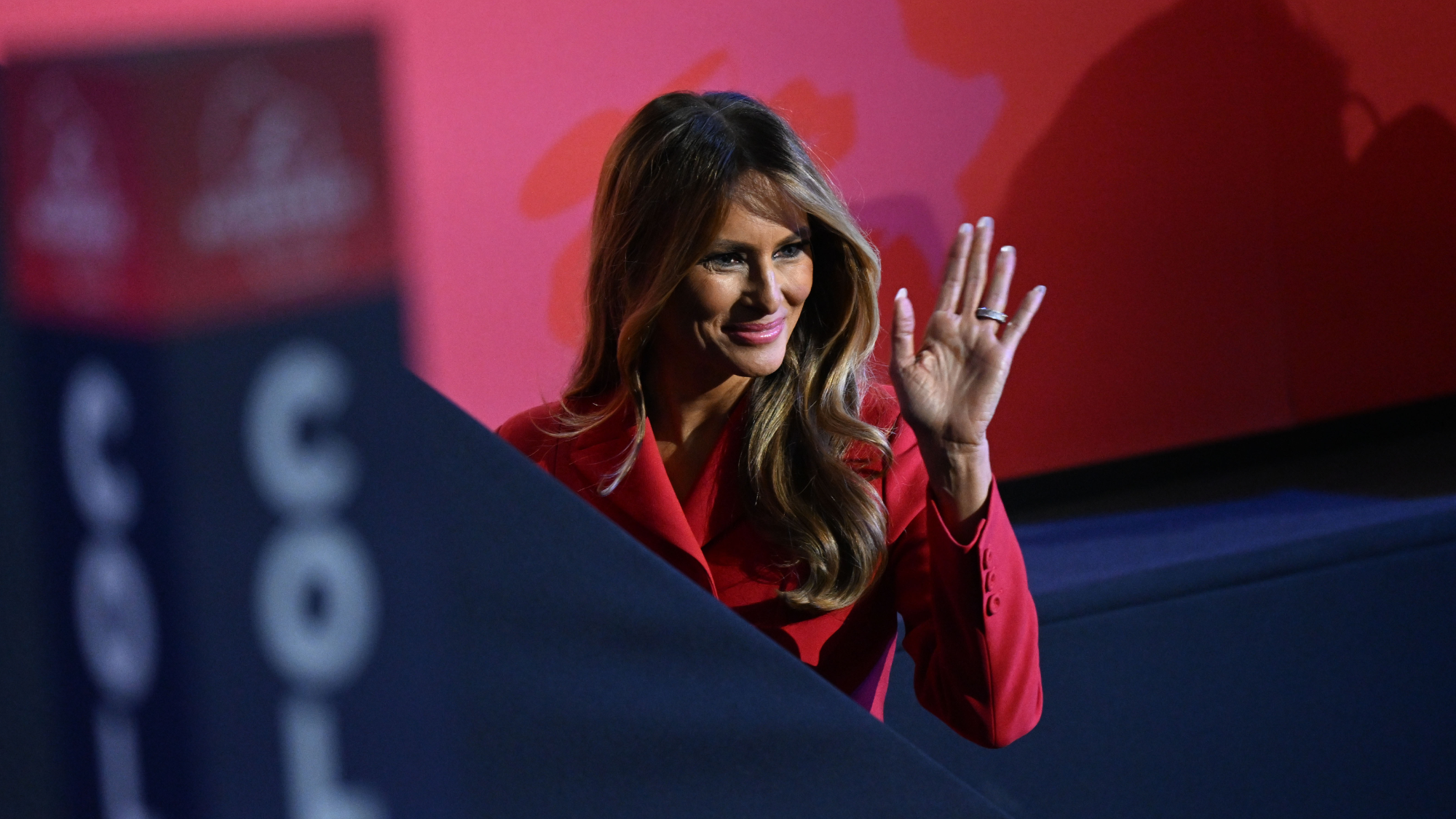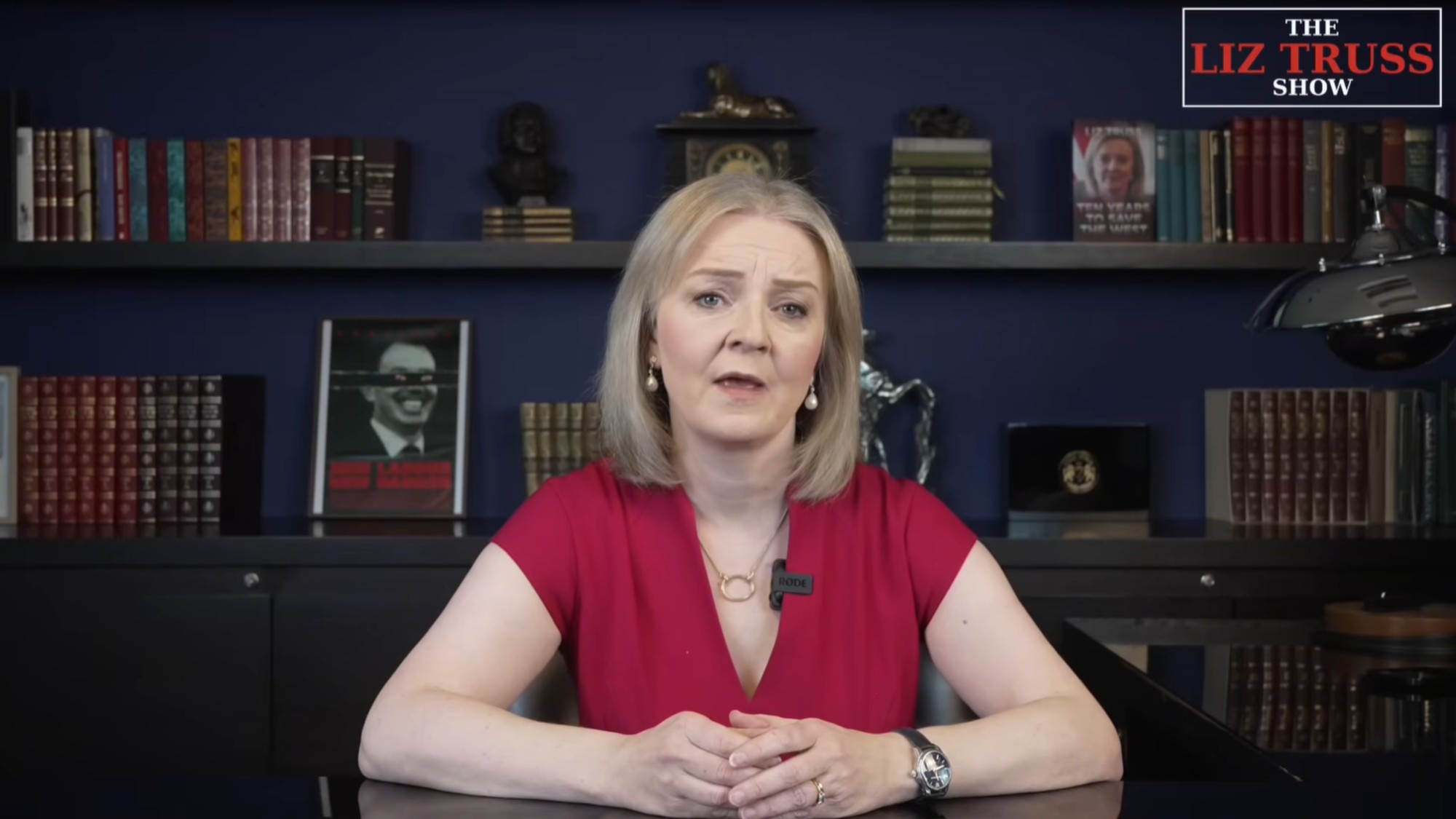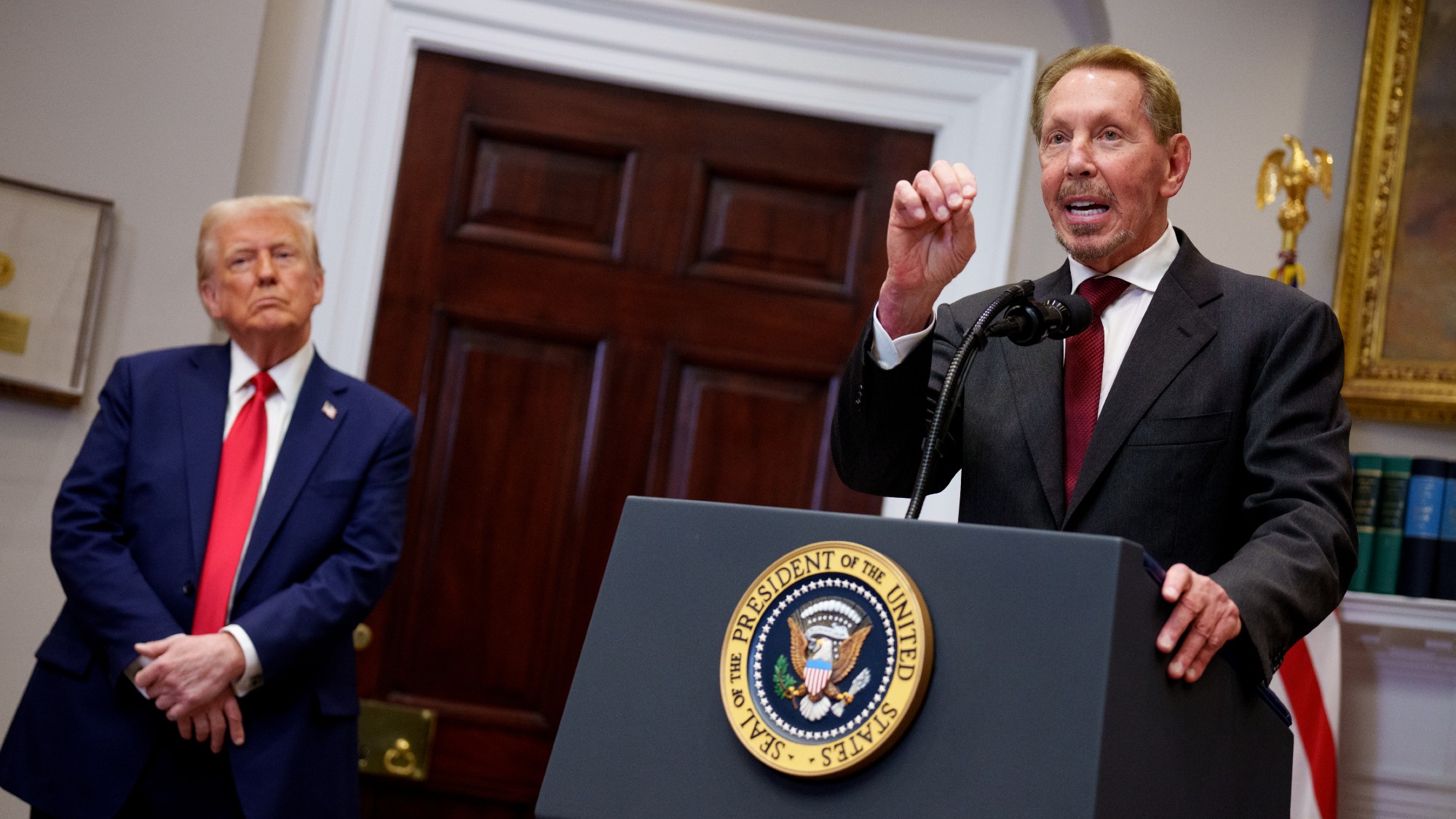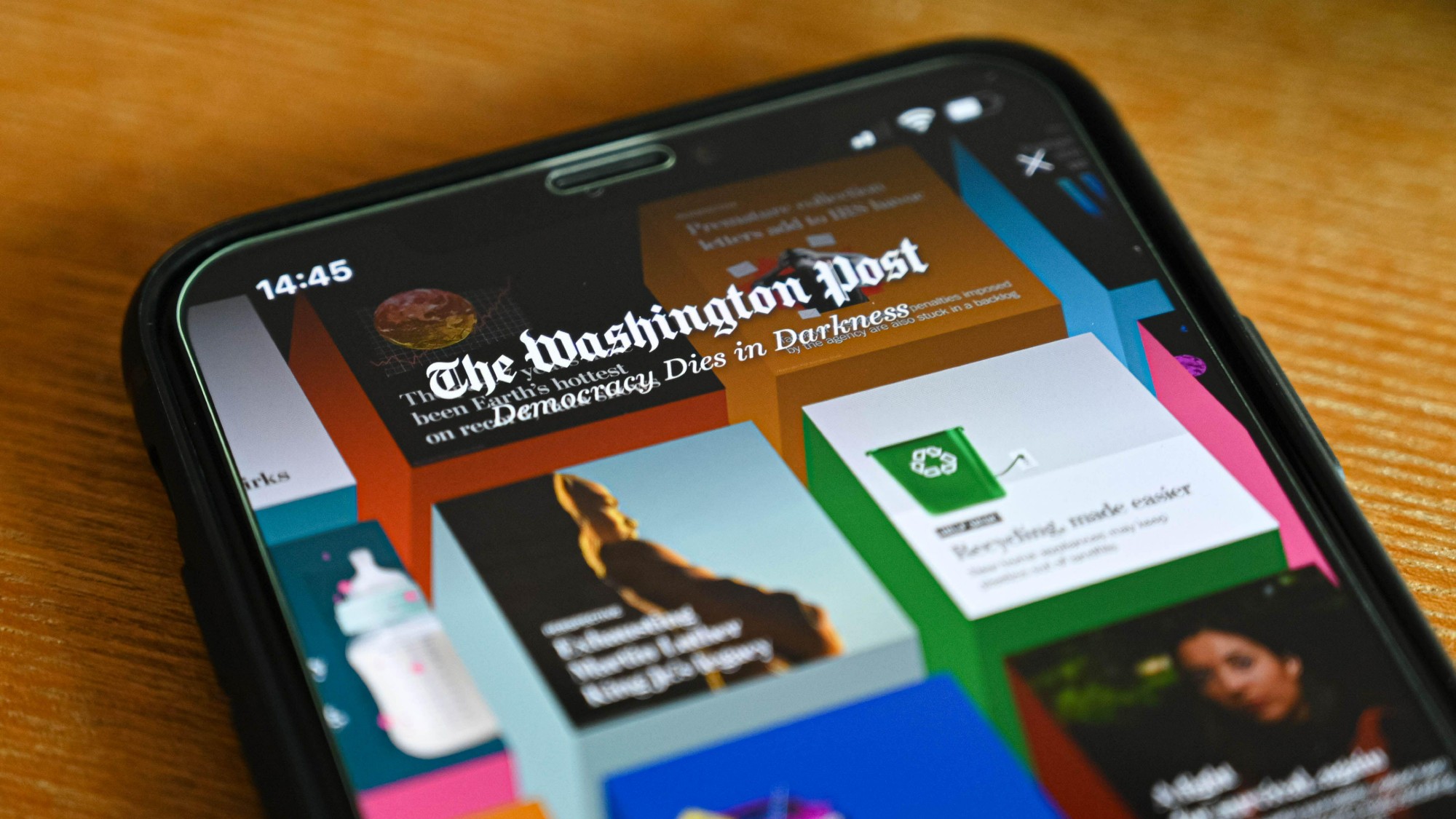Why the Maga vibe shift spelled trouble for Teen Vogue
As anti-feminist women’s magazines thrive, progressive titles are left out in the cold

A free daily email with the biggest news stories of the day – and the best features from TheWeek.com
You are now subscribed
Your newsletter sign-up was successful
“The magazine industry is in mourning,” said The New Statesman. Condé Nast announced earlier this month it would be folding Teen Vogue into its flagship Vogue magazine to “provide a more unified reader experience across titles”.
At first glance, this appears like just “another casualty of a fragile market”. But it’s a decision that also marks a significant “ideological turning point”. For the last nine years, Teen Vogue has paved the way for a “new approach to women’s media” that deliberately incorporates progressive politics into its editorial coverage, alongside fashion and lifestyle articles. “Now it has been essentially shut down.”
Fall from grace
Teen Vogue’s shift to the left can be traced back to shortly after the 2016 US presidential election, when it published an article that “set the internet ablaze”, said The Guardian. The piece was headlined “Donald Trump Is Gaslighting America”.
The Week
Escape your echo chamber. Get the facts behind the news, plus analysis from multiple perspectives.

Sign up for The Week's Free Newsletters
From our morning news briefing to a weekly Good News Newsletter, get the best of The Week delivered directly to your inbox.
From our morning news briefing to a weekly Good News Newsletter, get the best of The Week delivered directly to your inbox.
From then on, the magazine intensified its political coverage, becoming “an unlikely hearth for progressive, even radical, feminism within the manicured offices of its publisher”. Now, almost a decade since undergoing this transformation, “Trump is once again in the White House, and Teen Vogue as it was once known is gone”.
Its closure comes at a time of deepening “turbulence for journalism, particularly of the progressive variety”. Many of the trailblazing feminist blogs “now lay dead or dying”, while youth-focused websites like Vice and Vox have “shed jobs at astonishing rates”. These outlets often shone a light on the marginalised groups who have “fallen under the glare of the Trump administration’s microscope”.
Enter the ‘womanosphere’
Over the same period, there has been an increase in the number of conservative women’s media outlets. The Conservateur, for example, launched in 2020 with articles “heralding Melania Trump’s style” alongside “essays on the virtues of marrying powerful men”, said The New Statesman. And Evie Magazine, which has amassed a quarter of a million Instagram followers, is “rife” with anti-contraception stories and “tips for becoming the perfect housewife”.
Across the pond, despite not feeling quite as “glossy and seductive” as the US titles, sites like The Conservative Woman are thriving, with its aim of challenging the “virtue-signalling, intolerant and self-interested elites”. Existing within the broader online “womanosphere”, these publications “frame regressive feminine ideals as a corrective to ‘wokeness’ and the ‘radical left’”.
A free daily email with the biggest news stories of the day – and the best features from TheWeek.com
The unravelling of Teen Vogue has been met with reactions “predictably split along political lines”, said The Free Press. On the right there has been much “celebration”, together with the “occasional cheeky suggestion” that Melania Trump, who Teen Vogue often mocked for her outfits, put the magazine on a “hit list”. The “other side” has expressed “outrage” at the decision to close Teen Vogue at exactly the time its staff claim it is most needed.
In reality, Teen Vogue was “being written by and for millennials”, convinced they were giving a “new, politically obsessed generation the content they craved”. But it turned out “conspicuous wokeness” was the “exclusive passion” of the publication’s “ageing millennial writers and readers”, while the teens it claimed to represent had “long been getting their news from TikTok”. That the magazine would “fade into oblivion at the same time as its millennial fan base slouched out of their 20s” is “not only unsurprising, it was inevitable”.
Irenie Forshaw is the features editor at The Week, covering arts, culture and travel. She began her career in journalism at Leeds University, where she wrote for the student newspaper, The Gryphon, before working at The Guardian and The New Statesman Group. Irenie then became a senior writer at Elite Traveler, where she oversaw The Experts column.
-
 ‘Those rights don’t exist to protect criminals’
‘Those rights don’t exist to protect criminals’Instant Opinion Opinion, comment and editorials of the day
-
 Key Bangladesh election returns old guard to power
Key Bangladesh election returns old guard to powerSpeed Read The Bangladesh Nationalist Party claimed a decisive victory
-
 Judge blocks Hegseth from punishing Kelly over video
Judge blocks Hegseth from punishing Kelly over videoSpeed Read Defense Secretary Pete Hegseth pushed for the senator to be demoted over a video in which he reminds military officials they should refuse illegal orders
-
 Why X could face UK ban over Grok deepfake nudes
Why X could face UK ban over Grok deepfake nudesThe Explainer Ofcom is investigating whether Elon Musk’s AI chatbot breached Online Safety Act
-
 Paramount fights Netflix for Warner as Trump hovers
Paramount fights Netflix for Warner as Trump hoversSpeed Read Paramount Skydance is seeking to undo Netflix’s purchase of Warner Bros. Discovery
-
 Who is The Liz Truss Show for?
Who is The Liz Truss Show for?Talking Point Former PM’s new weekly programme is like watching her ‘commit a drive-by on herself’
-
 Can the BBC weather the impartiality storm?
Can the BBC weather the impartiality storm?Today's Big Question MPs’ questions failed to land any ‘killer blows’ to quell the ‘seismic outrage’ faced by the BBC
-
 Larry Ellison: the billionaire’s burgeoning media empire
Larry Ellison: the billionaire’s burgeoning media empireIn the Spotlight Oracle founder’s takeover of traditional and new media companies labelled ‘dangerous for democracy’ by US press watchdog
-
 What's Tucker Carlson's net worth?
What's Tucker Carlson's net worth?The Explainer The far-right media figure has made millions since his embrace of Trumpism
-
 The Washington Post: kowtowing to Trump?
The Washington Post: kowtowing to Trump?Talking Point The newspaper's opinion editor has handed in his notice following edict from Jeff Bezos
-
 Elon Musk and Wikipedia are feuding
Elon Musk and Wikipedia are feudingThe Explainer The online encyclopedia stands accused of being far-left propaganda